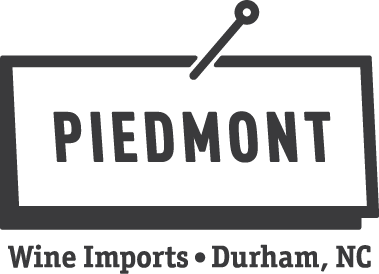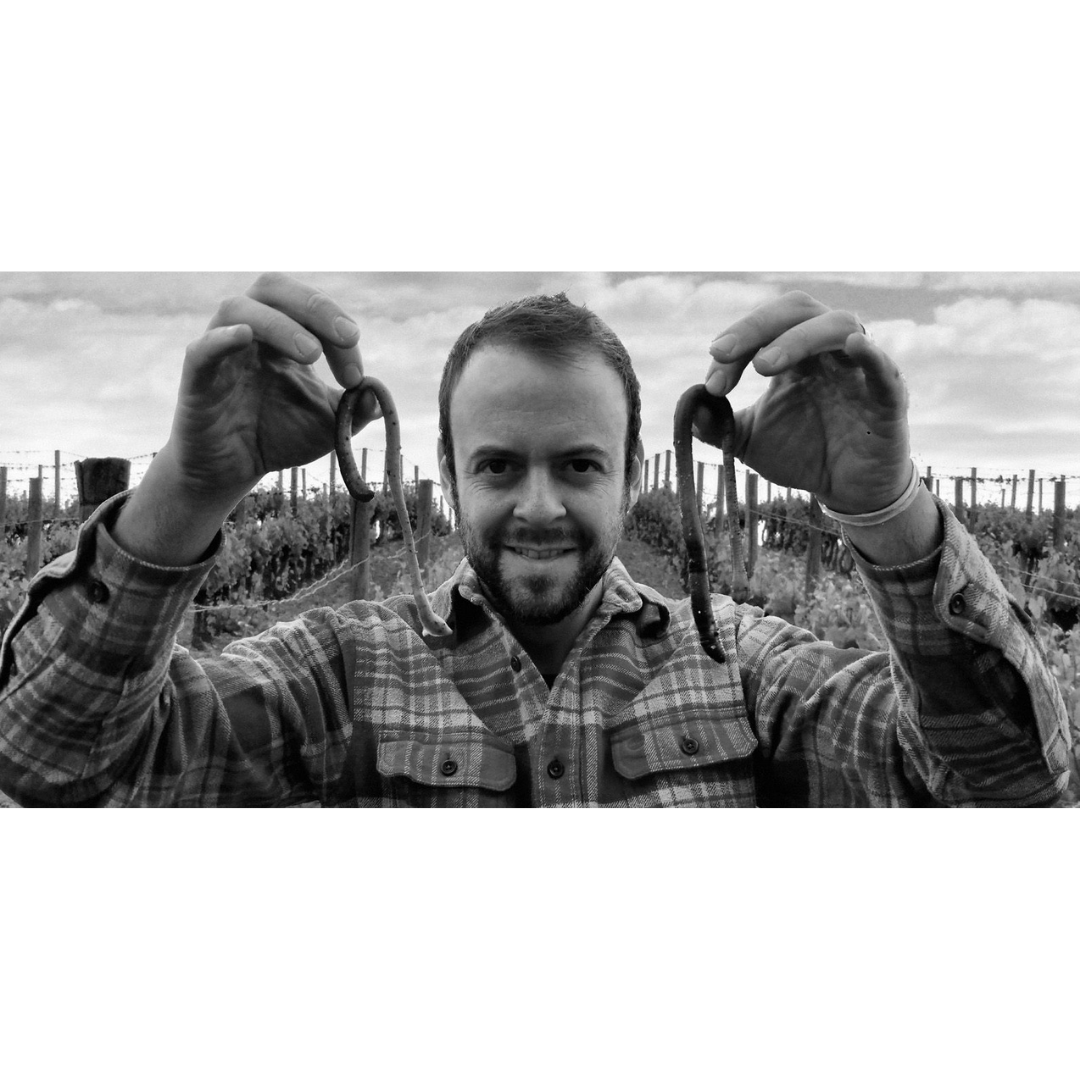
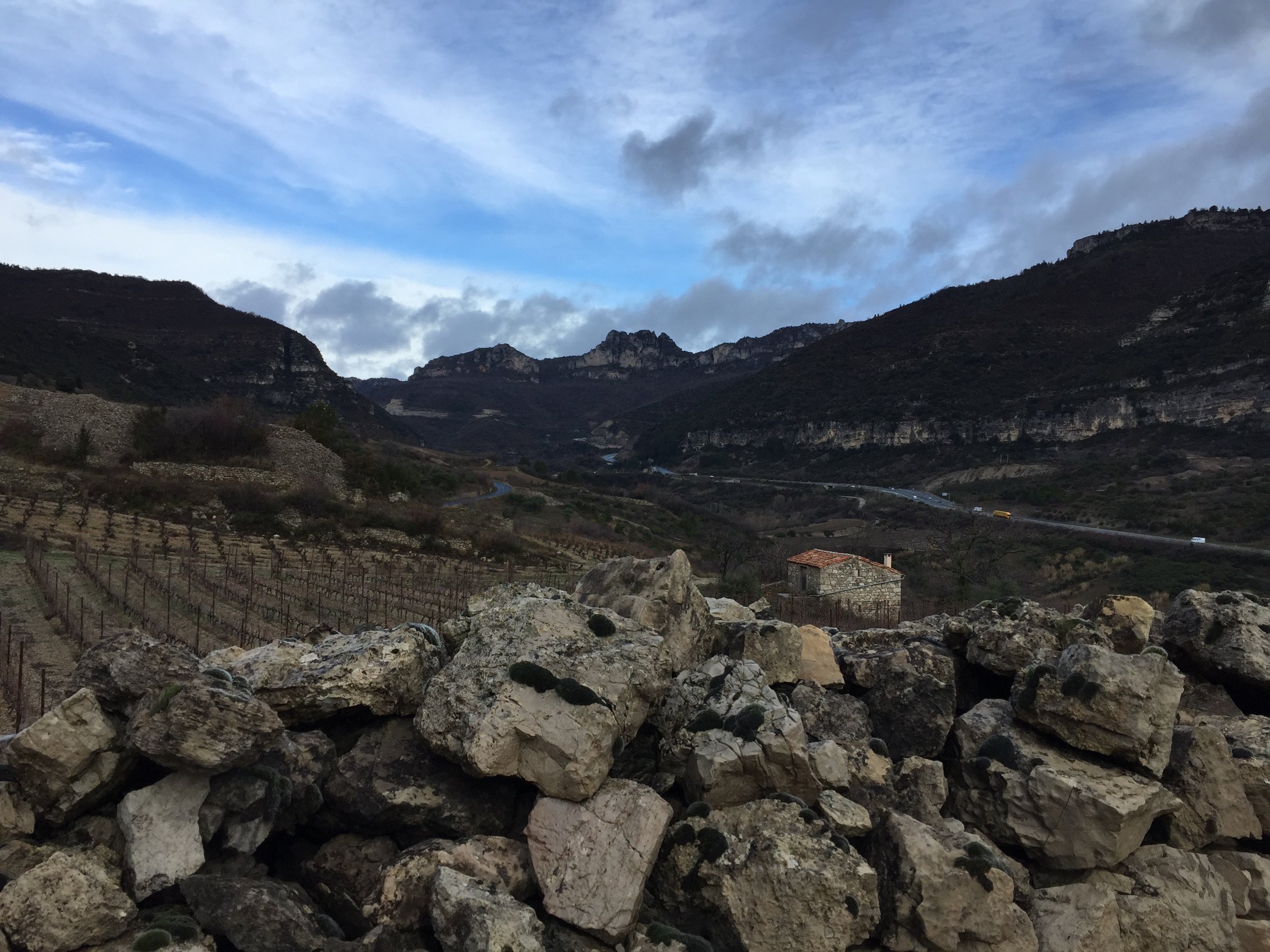


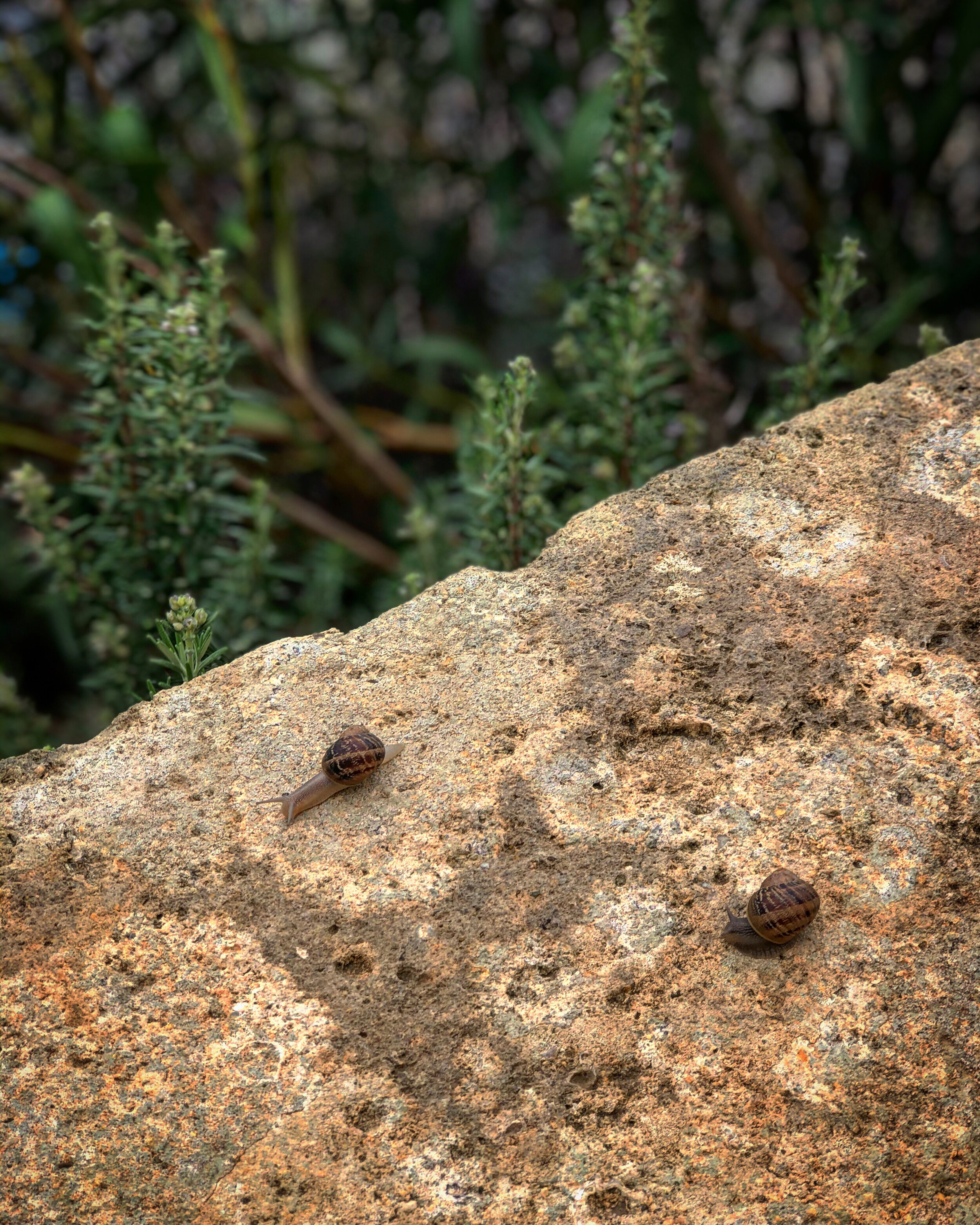
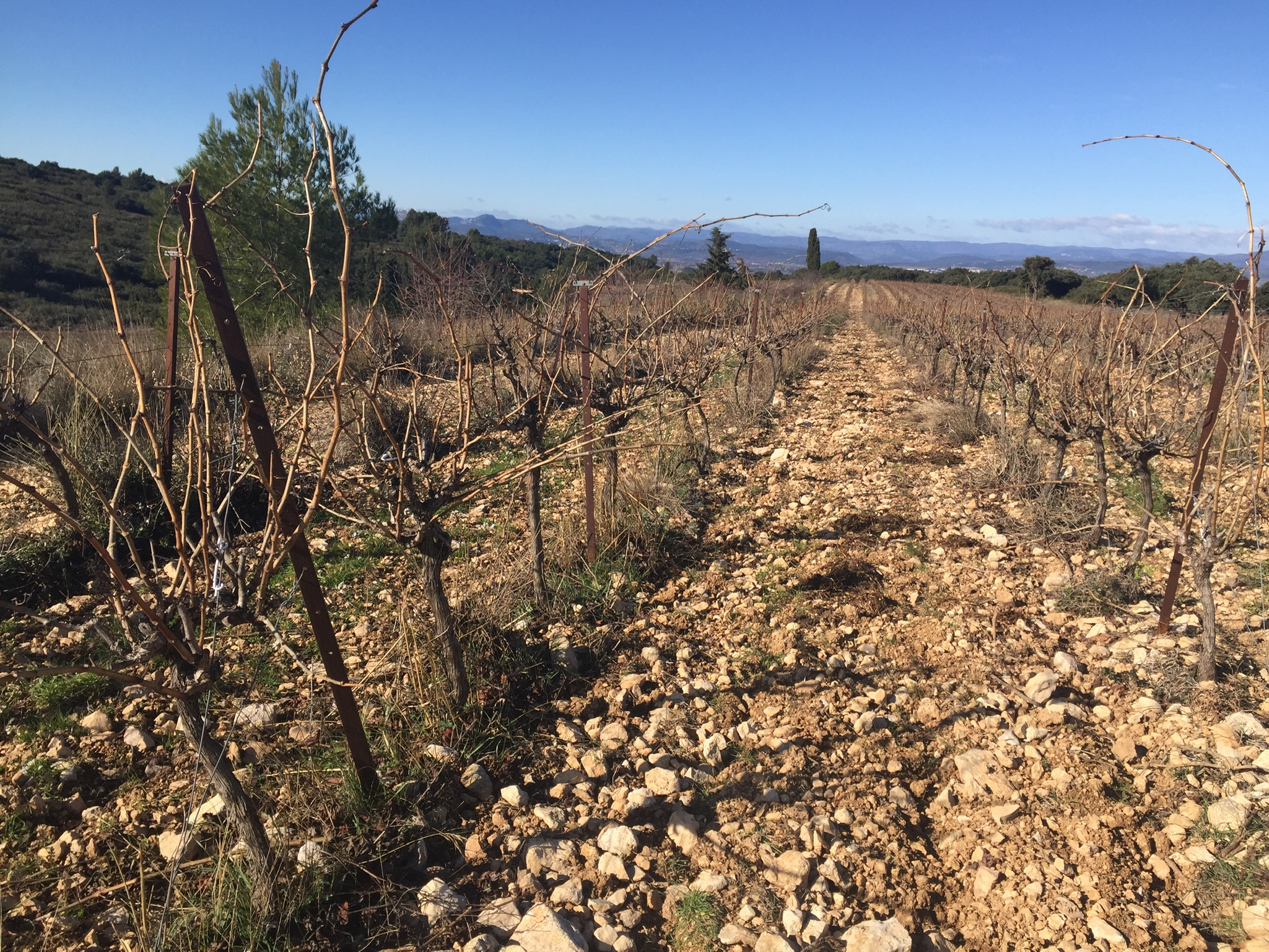
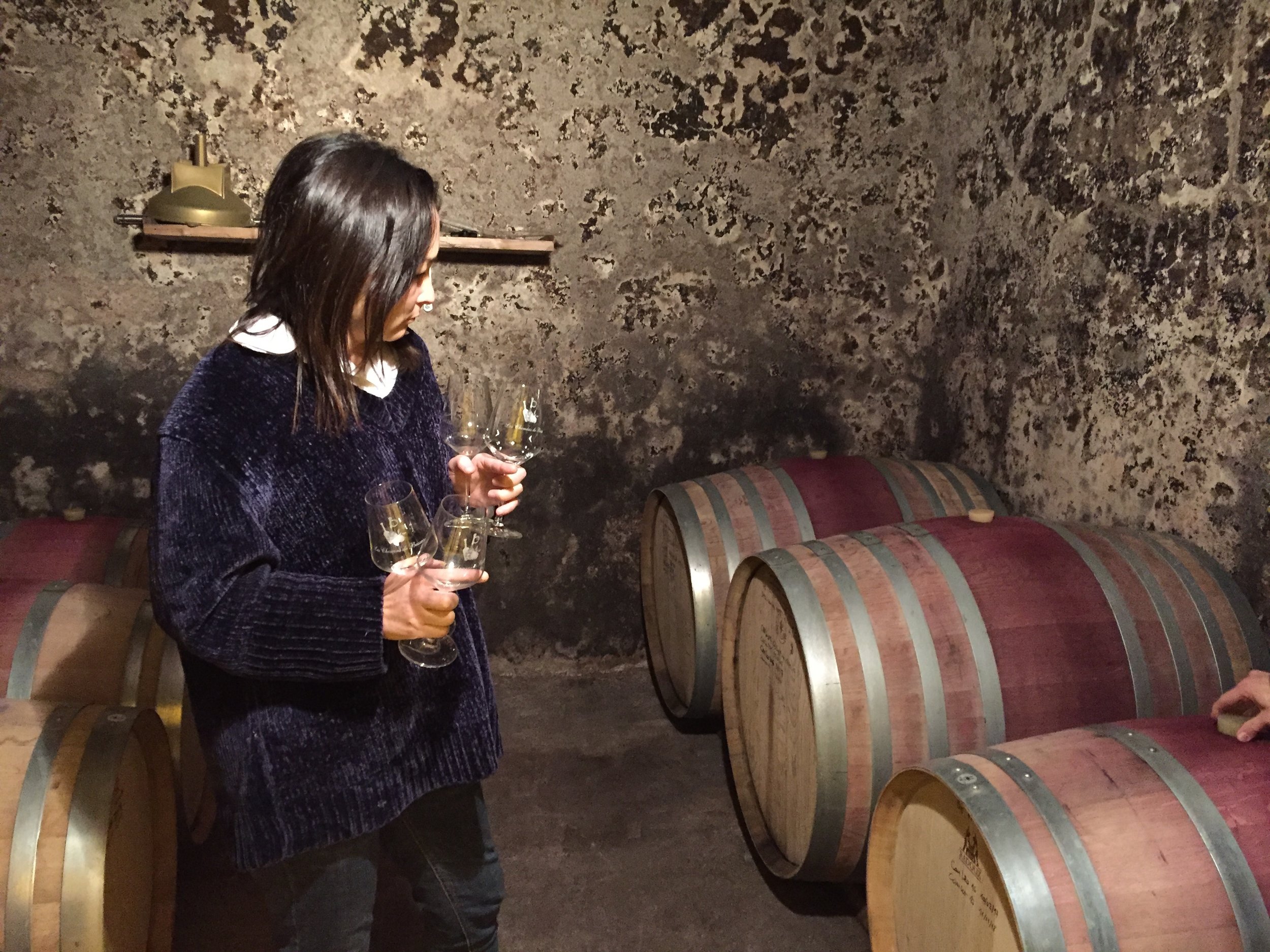
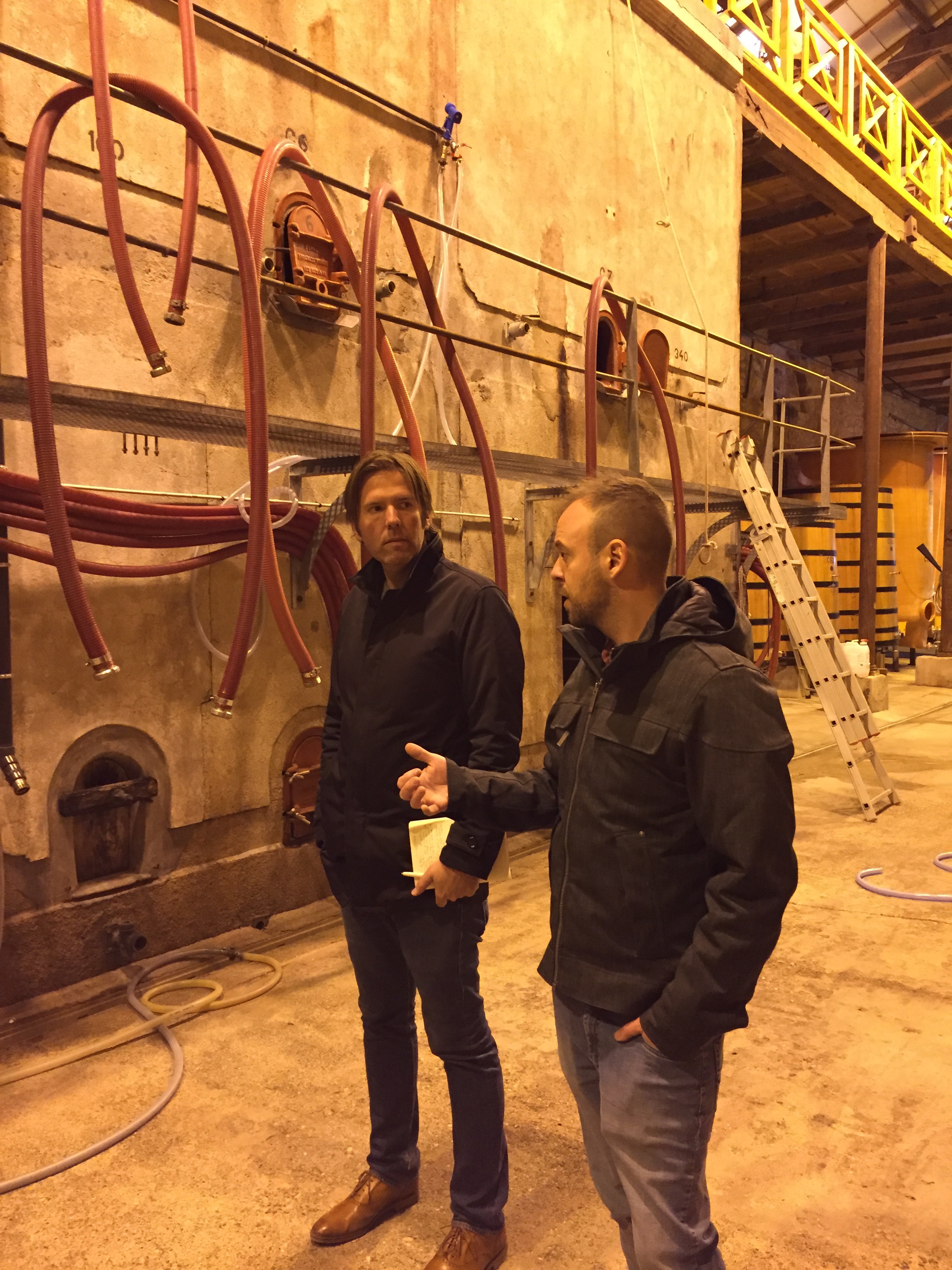
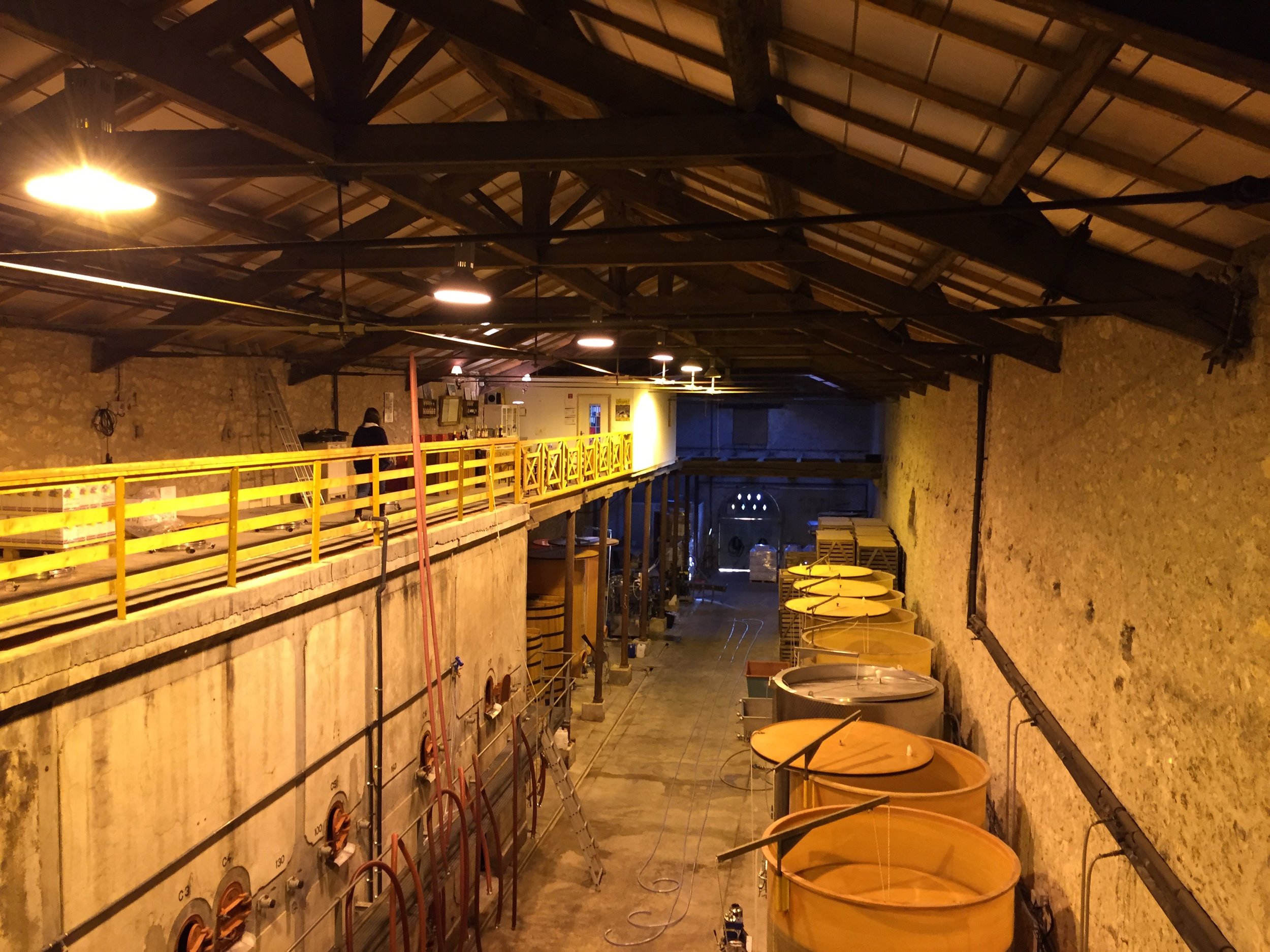
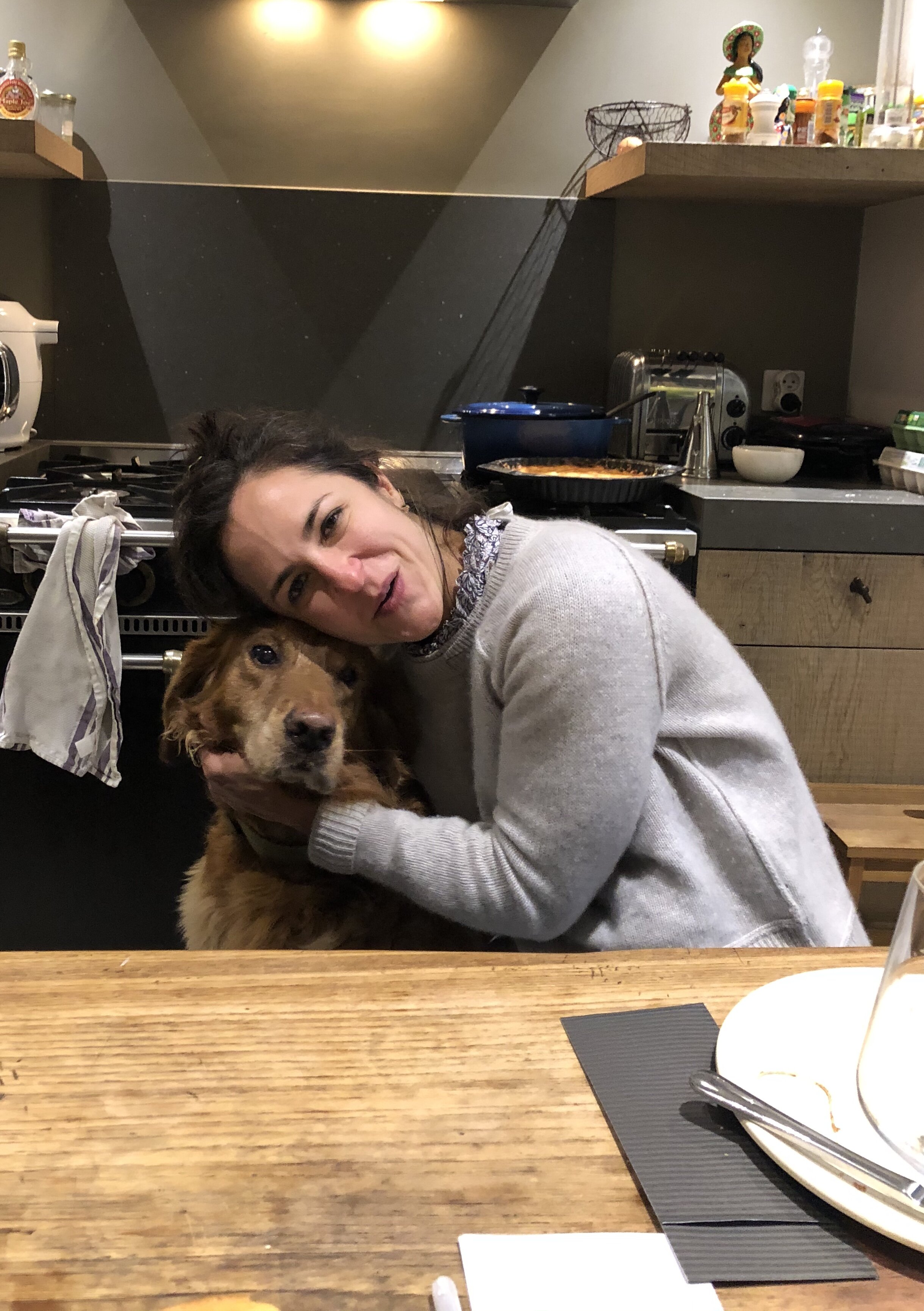
Les Chemins de Bassac
Who: Bruno Triguero and Thama Sakuma.
Where: Puimisson, Côtes de Thongue (Languedoc, France)
What grapes: Grenache, Syrah, Mourvedre, Pinot Noir, Cabernet Sauvignon, Roussanne, Viognier, Rolle
Key facts: Certified Organic for over 20 years and converted to fully Biodynamic in 2017. Les Chemins de Bassac is truly a passion project for husband and wife, Bruno & Thama. Their devotion to living a healthy agrarian lifestyle and eschewing toxic chemicals led the couple from Brazil to Puimisson.
Website: http://www.cheminsdebassac.com/en/
Instagram: @cheminsdebassac
Les Chemins de Bassac “Bouteillou — Les Parcelle Petillantes”
Viticulture: Certified organic / Biodynamic
Soil type: Limestone-clay originating from ancient Quaternary alluvial terraces
Elevation: 100m
Grapes: Viognier and Rolle
Method of fermentation: Wild yeast fermentation lasting 20 - 30 days. Secondary fermentation in bottle. No Sulfites added. Unfined, non-clarified, non-filtered.
This method ancestrale sparkling wine is a blend of Viognier and Rolle (Vermentino.) I tasted it for the first time at Bruno and Thama’s kitchen table. Social time at their home bounced from the terrace overlooking the backyard swimming pool to the kitchen. Thama fretted about the travails of being a foreigner in their quiet, insular corner of France. Bruno popped young bottles of this peachy, honeyed sparkling wine. Bouteillou is as convivial as they come, as are its makers.
Les Chemins de Bassac “Obscure — Les Parcelle Petillantes”
Viticulture: Certified organic / Biodynamic
Soil type: Limestone-clay originating from ancient Quaternary alluvial terraces
Elevation: 100m
Grapes: Pinot Noir
Method of fermentation: Wild yeast fermentation lasting 20 - 30 days. Secondary fermentation in bottle. No Sulfites added. Unfined, non-clarified, non-filtered.
Tiny Bubbles…hey how did Don Ho get in here? You have to be a certain age to get that one. Don’t miss out on this sparkler when it shows back up in North Carolina for a brief and shining moment. Buy as much as you can! It will not last long, and you definitely want to have a bottle or two or more. — az
Les Chemins de Bassac “A DERIVA — vers la nature” Côtes de Thongue IGP
Viticulture: Certified organic / Biodynamic
Soil type: Limestone-clay originating from ancient Quaternary alluvial terraces
Elevation: 100m
Grapes: 80% Pinot Noir, 20% Syrah
Method of fermentation: Wild yeast fermentation lasting 20 - 30 days.
2020 Les Chemins de Bassac A Deriva It’s a wild ride. An aromatic tour-de-force, a must-have for lovers of Syrah, or wintry red wines with compelling aromatic appeal. Bruno and Thama dive deep into the terroir of Puimisson, western Languedoc, and bring back a seamless, evocative, pure red for white beans and sausage. Low sulfur, no dirt. A realisation of the promise of biodynamic agriculture. And because it’s Languedoc and they are earnest, honest Brazillians, they aren’t cashing in on the craze. Hipster Friendly. 202 bottles available, so get some soon. — JM
Les Chemins de Bassac “Roussanne” Vin de France
Viticulture: Certified organic / Biodynamic / Vegan
Soil type: Limestone-clay originating from ancient Quaternary alluvial terraces
Elevation: 100m
Grapes: Roussanne
Method of fermentation: Wild yeast fermentation, no addition of any oenological products. Grapes are gently pressed, light debourbage before clear must is vatted for fermentation in concrete tanks. Bottling occurs by gravity without filtration according to the lunar calendar.
Les Chemins de Bassac “L'Incandescente” Rosé Vin de France
Viticulture: Certified organic / Vegan
Soil type: Limestone-clay originating from ancient Quaternary alluvial terraces
Elevation: 100m
Grapes: Syrah
Method of fermentation: Wild yeast fermentation, no addition of any oenological products. Grapes are gently pressed, light debourbage before clear must is vatted for fermentation in concrete tanks. Bottling occurs by gravity without filtration according to the lunar calendar.
Les Chemins de Bassac “Le Champs des Maures” Rouge Vin de France
Viticulture: Certified organic / Biodynamic / Vegan
Soil type: Limestone-clay originating from ancient Quaternary alluvial terraces
Elevation: 100m
Grapes: Cabernet Sauvignon
Method of fermentation: Wild yeast fermentation, no addition of any oenological products. Gentle maceration in concrete tanks. Bottling occurs by gravity without filtration according to the lunar calendar.
Winner of the prestigious “I can’t believe its Cabernet” award (a perennial PWI accolade) this red does all the things you like from that omnipresent grape, while avoiding the variety’s aesthetic setbacks. Dark fruit and herb are in the foreground. The texture is lively, not tiresome.
Les Chemins de Bassac “l’Univers Parallèle” Rouge Vin de France
Viticulture: Certified organic and Biodynamic / Vegan
Soil type: Limestone-clay originating from ancient Quaternary alluvial terraces
Elevation: 100m
Grapes: Grenache (60%) and Syrah (40%)
Method of fermentation: Spontaneous fermentation and aging in concrete tank. Unfined and unfiltered. Minimal sulfur added at bottling.
Les Chemins de Bassac “l’Univers Parallèle” Rouge Vin de France 5L Bag-in-Box
Viticulture: Certified organic and Biodynamic / Vegan
Soil type: Limestone-clay originating from ancient Quaternary alluvial terraces
Elevation: 100m
Grapes: Grenache (60%) and Syrah (40%)
Method of fermentation: Spontaneous fermentation and aging in concrete tank. Unfined and unfiltered. Minimal sulfur added at bottling.
Notes from a visit to Les Chemins de Bassac, 2/2/2018
Whatever shred of professionalism I cling to is reinforced by the existence of these notes. I was a week into the onset of pneumonia when I arrived at Les Chemins de Bassac. It was to become the sort of death march across Europe that every wine professional endures at least once in their career, and tells tales of eternally, to tamp down the allure of this work. Kid, it ain’t all glamour. One day you’ll be asleep in the back seat of a small Fiat outside the pharmacy of a nameless Tyrolean town, tossing and turning through fever dreams as paracetamol struggles to take hold. In that cramped and sweaty moment you’ll see how much fun it is being in the wine trade.
Why must we rain on the parades of others? Is there a German word for deliberately dampening the spirits of enthusiastic colleagues?
Bruno and Thama are from Sao Paolo. They bought Les Chemins de Bassac several years ago. It’s a certified-organic farm near Puimisson, a village of 1,000 residents in the western Languedoc, Cotes de Thongue appellation. Their winery is a vast 19th century farm building with massive concrete fermentation tanks and giant wooden beams supporting a roof perhaps 30 feet overhead? At one time the farm needed this enormous space, in the middle of the 20th century it stretched across 80 hectares. In recent decades the focus drifted from volume of production to smaller scale viticulture. The best 17 hectares of the historical farm were kept, restored with an emphasis on quality winemaking, the rest was sold off and mostly converted to mixed-use agriculture, cereals etc.
Walking past the ruins of “Bassac” with Bruno, we passed hunters who had bagged a few small game birds. It’s a quiet, empty landscape. Lots of plowed farmland and stands of green space. These two particular sportsmen run a burger truck in Puimisson, apparently. We passed a real array of vines: Pinot Noir, Mourvedre, Grenache, Cabernet, Syrah, Viognier, Roussanne, maybe more. There are fragments of oyster shells and coral in the soil, unsurprising for an almost-coastal zone.
Concrete tanks are used for the fermentation on the reds. Bruno and Thama work via gravity, easy enough when your winery is so massive! A metal gangplank runs from the front entrance of the building alongside and above these cement fermentors, traversing the length of the space, to Thama’s office.
To make clean natural wine they utilize temperature control. Most vessels are kept at 10-12 degrees Celsius in the summer, and monitored for volatility every three days. It is labor intensive work, for sure. Some sulfur is added at bottling to ensure stability during transportation.
25-year-old tronconic wooden barrels are used for assembling the final blend for Bruno and Thama’s “Raiz” line of wines. It’s a new project, a creation of the estate that has slowly become wholly theirs. The Raiz blanc tastes fresh and clean, with appealing mineral dryness on the palate. The aromas are vivid, tropical, bordering on banana. The light, pleasant, well-made Raiz rose can’t get here fast enough! It’ll be perfect for present-and-future beach excursions. The Raiz Rouge has fresh tart berry fruit, and is again quite mineral on the palate. It is rich and complex in mouthfeel in comparison to reds made at Les Chemins de Bassac in the past.
The a Deriva is a little lactic on the nose. It’s dense for Pinot Noir, with slightly mouth coating tannin. Plenty of sweet fruit mid-palate, though. Until it’s a year or two older I’ll want it with hearty meals, which aren’t hard to find in the Languedoc.
The Sagarana was my favorite of the reds, in spite of being a little clunky on the finish when tasted very young. I’m eager to encounter it again in the USA, now that time in the bottle has tamed it.
Bruno and Thama are passionate natural farmers, Brazillian expats who believe in the importance of organic viticulture enough to have jettisoned careers, and the comforts of urban life, uprooting with their two young daughters to explore a different form of existence halfway around the globe. As we sat in their kitchen, a string of local French friends wandered in, sharing jokes and stories and glasses of wine. It felt casual, convivial. The new arrivals are breathing life into this sleepy town and its farmland. I’m glad we get to see the story develop.
